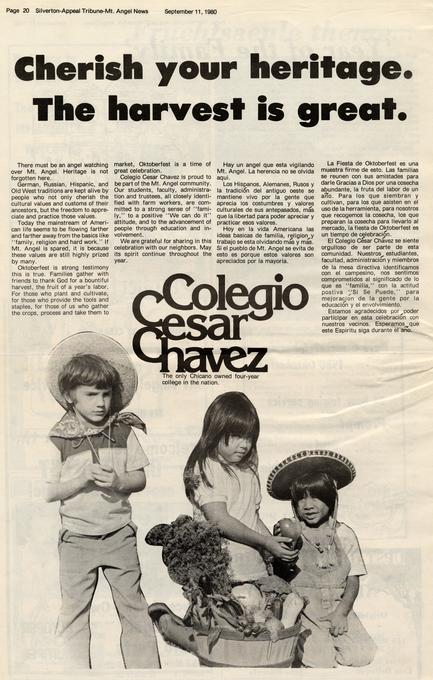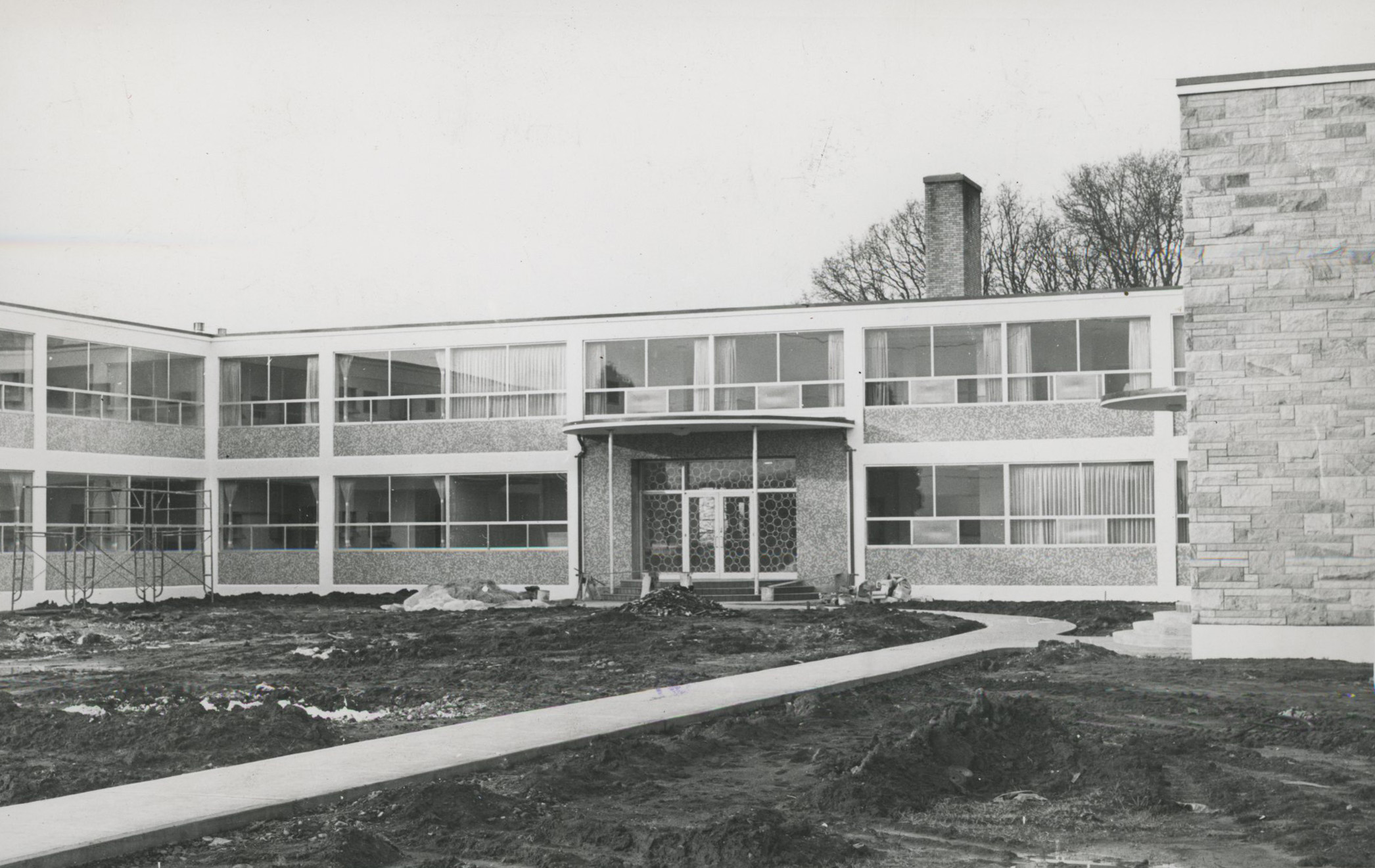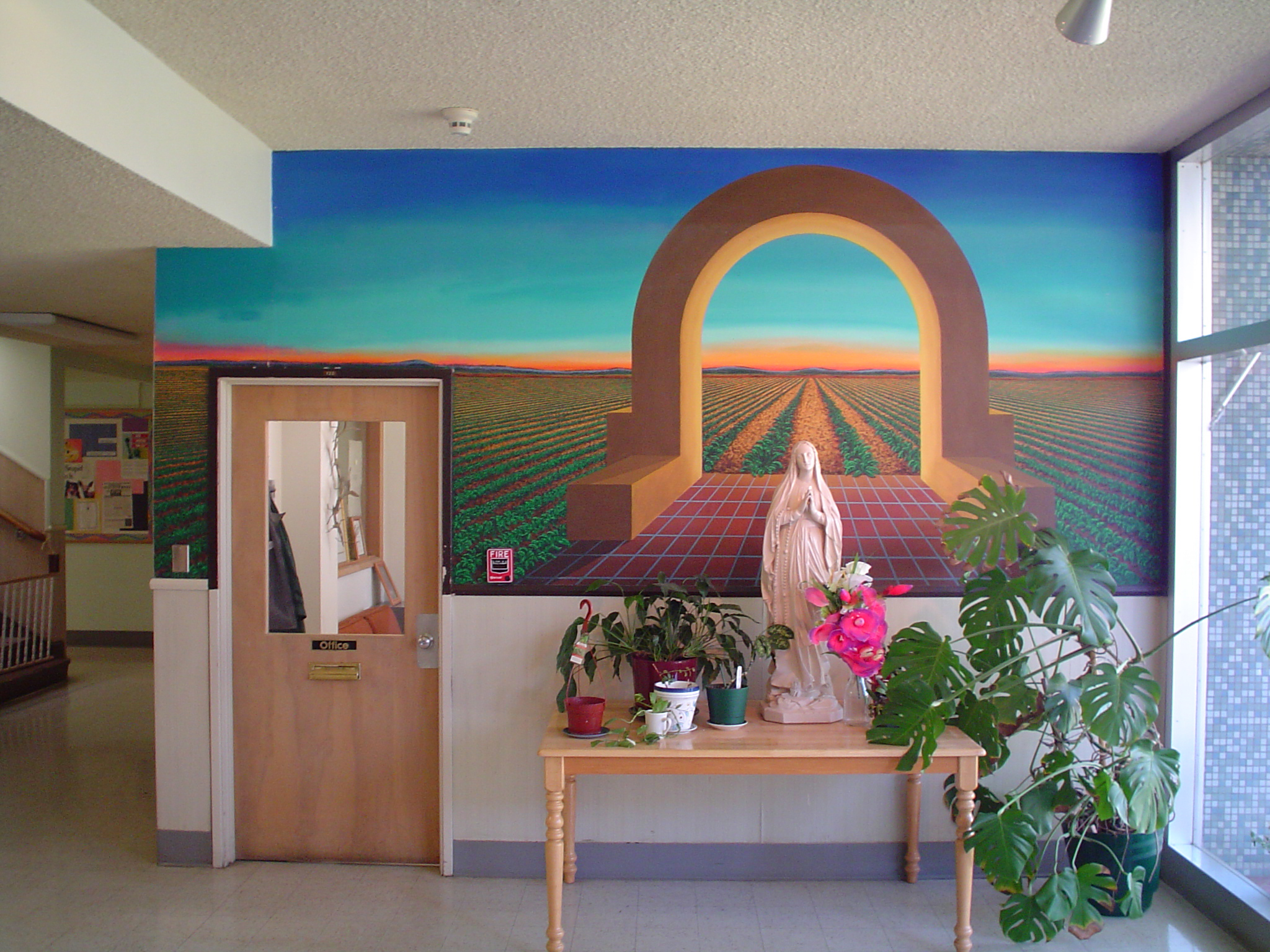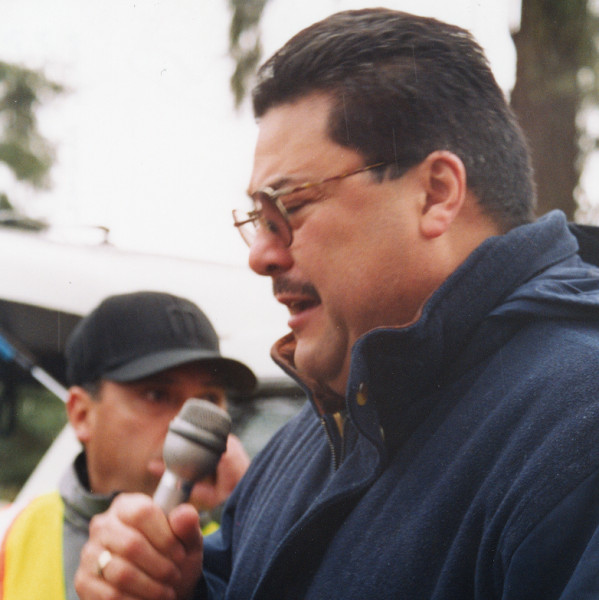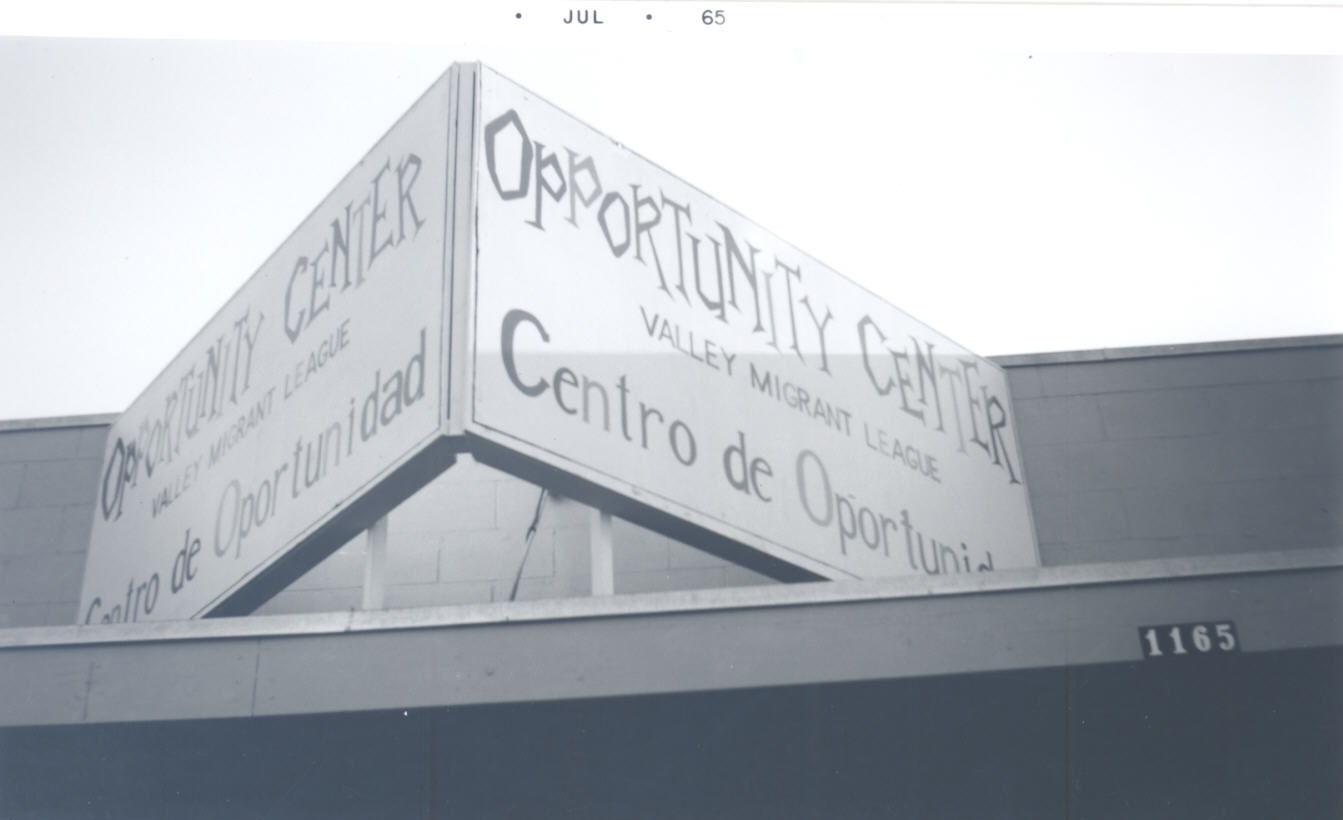Colegio César Chávez, located in Mt. Angel in the lower Willamette Valley, was the first four-year accredited Chicano-run college in the United States. The college, which operated from 1973 to 1983, represented the needs and activism of the Chicano community in Oregon at a time when many Latino and Latina immigrants were fighting for rights across the nation. The institution’s primary goal was to provide equal educational opportunities to Chicano and minority students and to create a Chicano bilingual/bicultural curriculum based on the College Without Walls education program.
Colegio César Chávez was located on the former campus of Mt. Angel College. Founded in 1888 by an order of Benedictine Sisters, the college changed over the years from an all-female school to a co-ed institution that offered degrees in the humanities and elementary education. In the 1960s, the Department of Housing and Urban Development (HUD) allocated loans to the college for the construction of campus buildings. By 1972, Mt. Angel was unable to pay back its debt to HUD, and the college lost its accreditation due to low student enrollment and institutional infighting.
Part of the infighting had to do with the direction and recruitment of students. Father Joseph Blitz, professor of theology, supported the college's African American students, who called for the recruitment of more Black students and faculty and an increase in financial aid to students of color. In March 1971, Blizt called Mt. Angel College a racist institution and demanded that it close its doors if it did not meet students’ demands. In June, the administrative staff and board agreed to hire and recruit more minority students and to provide them with financial assistance.
The move toward creating a multicultural institution began in 1971, with the arrival of Chicano activist Sonny Montes as director of Ethnic Affairs. Montes, President Mondor, and Ivo Bauman, chair of the board of trustees, championed two important changes in 1972: the increased recruitment of Mexican American students and the introduction of the College Without Walls program, which granted credits for work done in the community. While administrators actively recruited Chicano students, the student body was diverse and included African Americans and Native Americans. The College Without Walls was an approach that took hold during the 1960s through the Union for Experimenting Colleges and Universities. The program was based on community service and outreach, student-directed learning, and a non-letter grading system.
In December 1973, Dean Ernesto Lopez announced that Mt. Angel College would be renamed Colegio César Chávez, after the Chicano labor leader and civil rights activist. The new name indicated the administration’s desire that the college ally itself with La Causa, the Mexican American and Chicano civil rights movement. When César Chávez visited the college in May 1974 and October 1977, he brought regional and national attention to the college. In 1978, Chávez and Sonny Montes helped organize and negotiate an arrangement with HUD to pay back the housing loans and keep the college open.
Over the ten years when the college operated, twenty-one students graduated with B.A. degrees or Certificates of Competency. Fifteen of those students were Mexican American. Enrollment fluctuated over the years with a high of around seventy students in 1974; the lowest enrollment was ten students in the early 1980s. The experimental curriculum, restricted financial-aid budget, and high numbers of part-time students contributed to low enrollment and graduation rates. An average of five to nine fulltime faculty and as many as thirty-five volunteer adjunct instructors taught classes in liberal arts, with an emphasis on Chicano bilingual/bicultural teacher training, Chicano studies, and early childhood development. Notable graduates and faculty include Cipriano Ferrel, founder of Pineros y Campseinos Unidos del Noroeste (PCUN); Jose Angel Guiterrez, a poet and founder of La Raza Unida Party; and activist Sonny Montes.
Throughout its existence, the Colegio faced the challenges of repaying HUD nearly one million dollars and obtaining accreditation. College administrators devised numerous plans to pay back the debt, and eventually negotiated an arrangement with HUD. The college received accreditation in June 1975 from the Northwest Association of Schools and Colleges. Despite those victories, internal disagreements plagued the college. In 1981, the college’s reapplication for accreditation was denied due to financial instability, low student enrollment, and political infighting within the institution.
Colegio César Chávez closed its doors in June 1983, and the property sat vacant between 1983 and 1985. When HUD wanted to foreclose the property in 1985, a friend of the Benedictine Sisters paid the remaining debt and the property returned to the Sisters in 1986. The only remaining physical evidence of the Colegio is a mural at St. Joseph’s, which was originally on display in Huelga Hall, which now houses St. Joseph’s Shelter and Mission. Daniel DeSiga painted the mural in 1975 and titled it College Without Walls.
-
![]()
Ad for Colegio César Chávez, Silverton-Appeal Tribune, September 1980.
Courtesy Oregon State University Libraries
-
![]()
Mt. Angel college building, 1960, which became Colegio César Chávez.
Courtesy Oregon Hist. Soc. Research Lib., bc006193
-
![]()
Colegio César Chávez catalog.
Courtesy Oregon State University Libraries
-
![College Without Walls mural painted by Daniel Desiga]()
College Without Walls Mural.
College Without Walls mural painted by Daniel Desiga Courtesy Andrew Parodi
Related Entries
-
City of Mt. Angel
Mt. Angel is a small community of about 3,392 people in 2020, approxima…
-
![Latinos in Oregon]()
Latinos in Oregon
The arrival of Latinos in Oregon began with Spanish explorations in the…
-
![Pineros y Campesinos Unidos del Noroeste (PCUN)]()
Pineros y Campesinos Unidos del Noroeste (PCUN)
Founded in April 1985, the Pineros y Campesinos Unidos del Noroeste (th…
-
![Valley Migrant League]()
Valley Migrant League
From 1965 until 1974, the Valley Migrant League (VML) helped Oregon mig…
Map This on the Oregon History WayFinder
The Oregon History Wayfinder is an interactive map that identifies significant places, people, and events in Oregon history.
Further Reading
Avila, Alicia. "Oregon's historic Chicano college continues to inspire as Latine communities fight against erasure." Oregon Experience. Oregon Public Broadcasting. December 12, 2024.
May, Glenn Anthony. 2011. Sonny Montes and Mexican American Activism in Oregon. Corvallis: Oregon State University.
Maldonado, Carlos S. 2000. Colegio Cesar Chavez: A Chicano Struggle for Educational Self- Determination. Taylor & Francis.
Maldonado, Carlos. 1986. The Longest Running Death in History. Ph.D Thesis, Portland State University.
Baer, April. “What is Cesar Chavez’s Connection to Oregon?” Oregon Public Radio. July 17, 2012.
Oral History Interview Regarding Colegio César Chávez. Andrew Parodi and Karen Olivio. Oregon Multicultural Archives and Oregon State University Queer Archives Blog.
Powell, Meerah and Emily Hamilton. "Nation's first four-year, independent Chicano university celebrates 50 years since founding in Oregon." Oregon Public Broadcasting. August 26, 2023.

